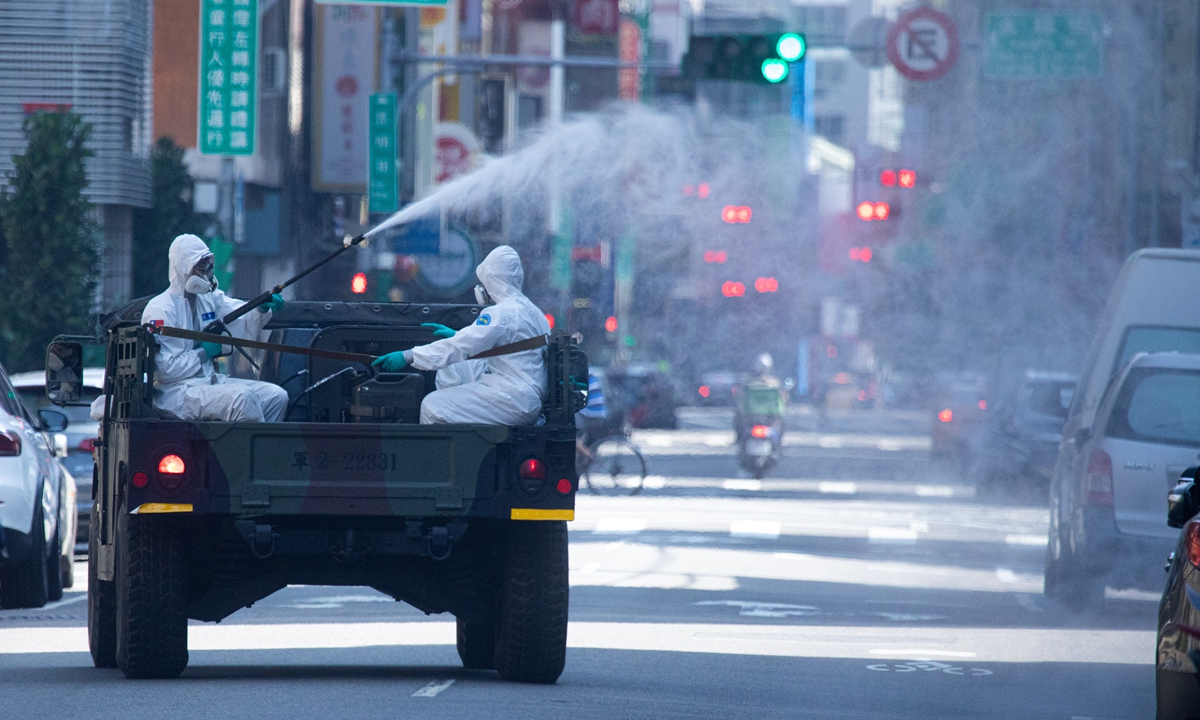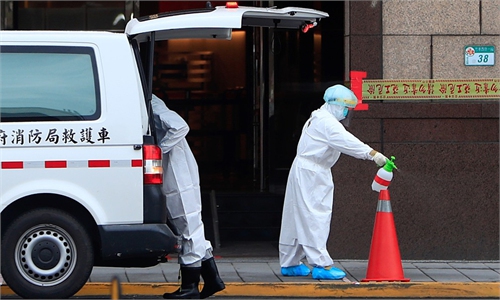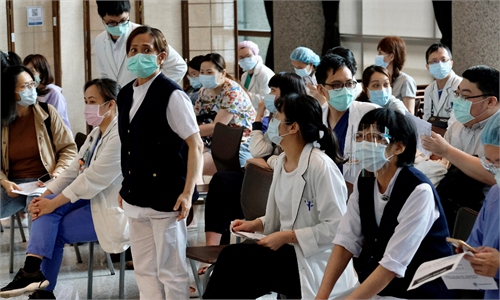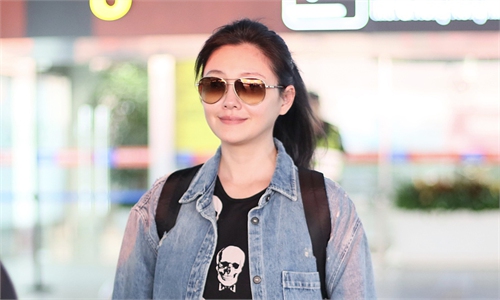Update: 29 post-AZ injection deaths reported in Taiwan, shedding light on true face of DPP: experts

Disinfection workers sanitize the streets in Taipei on the island of Taiwan on Sunday amid mounting COVID-19 epidemic control pressure, as the island registered 335 cases on Monday following 207 the previous day. Photo: VCG
Deaths among those who had received the AstraZeneca (AZ) COVID-19 vaccine in Taiwan have increased hesitation among the public to get jabs, with some criticizing the politically driven policy made by the secessionist Democratic Progressive Party (DPP) authority as a shame to the virus-hit island.
Two days after Taiwan started inoculations with the AZ vaccine that was delivered from Japan, the island recorded at least 13 deaths, although local authorities were reluctant to classify those deaths as being related to the vaccine, local media said.
As of Friday, 29 post-injection deaths have been reported.
Most of those who died were aged between 60 and 90, and some had a history of chronic diseases. The sudden deaths after vaccination made many elder people and their relatives worried, and they feared that it would be all right if they did not get vaccinated, but there would be a danger to life if they did.
Kaohsiung on Thursday reduced the vaccination venues from the planned 34 to 27, and some sites had more medics than patients, local media reported.
A Beijing-based immunologist told the Global Times on Thursday that some European nations such as Denmark had stopped using the AZ vaccine, although the European Medicines Agency listed the blood clots with low blood platelets that were strongly associated with the AZ vaccine, as a rare side effect.
Canada on Thursday local time suspended the use of AstraZeneca for people who are waiting for a second dose due to blood clot risks, and suggested people receive vaccines in other technical routes, such as mRNA vaccines by Pfizer. The country had already stopped AstraZeneca for first-dose vaccinations earlier, media reported.
The immunologist suggested that Taiwan should suspend administering the AZ vaccine for the sake of public health, to allow more detailed investigations and evaluations of its safety.
The deaths may not be directly related to the vaccine, but still some Taiwan netizens worried that Japan was just dumping the "questionable" vaccine on Taiwan. The AZ vaccine is not included in the inoculation plan in Japan.
Wang Jianmin, a senior cross-Straits expert at Minnan Normal University, told the Global Times on Thursday that the deaths showed that Japan's offer of the AZ vaccine was more of a humiliation to the island.
Japan is considering a second donation to the island after it sent 1.24 million AZ doses to Taiwan earlier this month, local media said.
Chen I-hsin, a politician from the opposition camp Kuomintang, said on Facebook on Thursday that he had foreseen the incident last week and asked the DPP authority to take precaution before the AZ vaccine was dispatched. However, the DPP did not buy it, resulting in those deaths among the elderly.
Some Taiwan residents blamed the DPP, which would rather take the risk of questionable vaccines than accept vaccines offered by the Chinese mainland. Some are seeking other solutions, including flying to the mainland for vaccinations, amid an infection surge and vaccine shortage.
Wang said that the DPP's reluctance to take vaccines from the mainland was not only politically driven but also was probably economically driven, as accepting vaccines from the mainland would strike against its home-grown vaccine that is still waiting for approval.
Some Taiwan internet users said they believed that the vaccine and inoculation fiasco had answered the question "Are the DPP's political interests more important than Taiwan residents' lives?"





